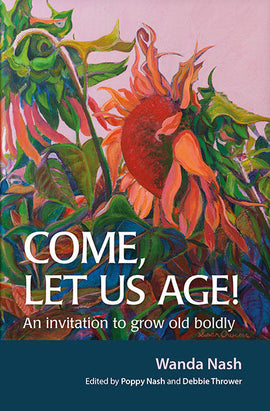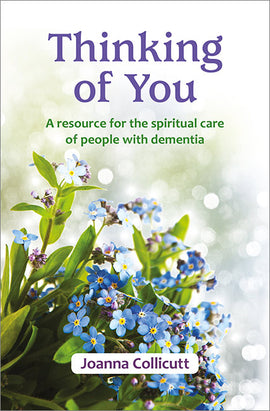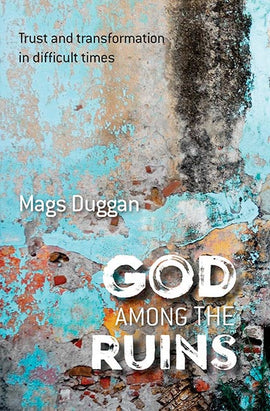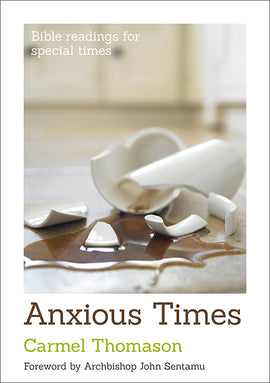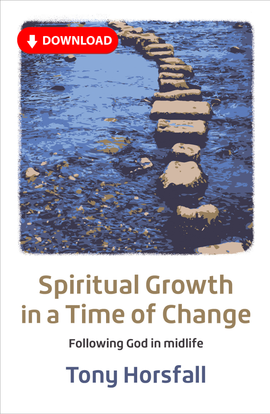At the End of the Day: Enjoying life in the departure lounge
An octogenarian takes a wryly humorous look at what it's like to be old in an era of the relentlessly new. Turning to the Bible, he explores its store of timeless wisdom, encouragement and reassurance about what it has always meant to grow old and be old. The book is structured around a series of fascinating biblical pictures, from the legendary Methuselah to the feisty Sarah and the great leader Moses, from the picture of inevitable decline as the Preacher saw it in Ecclesiastes to the glorious Nunc Dimittis of old Simeon in the temple.
| Title | At the End of the Day: Enjoying life in the departure lounge |
| Author | David Winter |
| Description | An octogenarian takes a wryly humorous look at what it's like to be old in an era of the relentlessly new. Turning to the Bible, he explores its store of timeless wisdom, encouragement and reassurance about what it has always meant to grow old and be old. The book is structured around a series of fascinating biblical pictures, from the legendary Methuselah to the feisty Sarah and the great leader Moses, from the picture of inevitable decline as the Preacher saw it in Ecclesiastes to the glorious Nunc Dimittis of old Simeon in the temple. 'At the end of the day' is a well-worn phrase - yet seeing life as a single day, with dawn, noon, sunny afternoon, twilight and then darkness and sleep, provides a sort of contracted chronology of a journey we are all taking. Those who are at, or beyond, tea-time - as well as their friends and family - may find this book offers an essentially optimistic, positive and attractive picture of both the present and the future. David Winter introduces At the End of the Day I wrote At the End of the Day because I wanted to address this situation not as a problem (which is how sociologists, politicians and media commentators seem to see it) but simply as yet another life experience. All through life we move more or less seamlessly from one stage to another, from childhood to adolescence, from that to young adulthood, from that to middle age, and from that to the retirement years. This book is an attempt to record what it is like finally to move into the departure lounge of life, awaiting the call to board our flight from this life to whatever it is that God has planned for us at its end. The departure lounge is not as bad as it may look in prospect. Believe it or not, being old can be fun. Of course there are problems - aches and pains, sluggish memory and so on. But there are also enormous compensations in old age, including the freedom to be ourselves without any pressure to achieve or justify our existence. I was surprised to discover (when I got there myself) that the elderly don't endlessly discuss death. Compared with teenagers, young adults and even the middle-aged, they are not living with plans for the future but with the richness of the here and now. At the End of the Day takes a quizzical look at some of the wonderful old men and women whose stories are part of the Hebrew and Christian scriptures. Surprisingly, perhaps, their experiences seem to match many of ours. We look at them, of course, through the long perspective of time and also through the prism of our modern experiences, but there is wisdom, fulfilment and encouragement in those biblical records. This is not a 'heavy' book. How could it be when the elderly spend so much time laughing at themselves and at the whole business of being old! Nor is it depressing - again, how could it be, when we are seated in that departure lounge awaiting the final great adventure. I wrote it not just for those who are already old, although I hope they'll find it both amusing and encouraging, but also for all those who want to know what it's going to be like to join our ranks. They may be surprised to find that the poet Robert Browning got it right when he said, 'The best is yet to be.' |
| Details |
|
An octogenarian takes a wryly humorous look at what it's like to be old in an era of the relentlessly new. Turning to the Bible, he explores its store of timeless wisdom, encouragement and reassurance about what it has always meant to grow old and be old. The book is structured around a series of fascinating biblical pictures, from the legendary Methuselah to the feisty Sarah and the great leader Moses, from the picture of inevitable decline as the Preacher saw it in Ecclesiastes to the glorious Nunc Dimittis of old Simeon in the temple.
'At the end of the day' is a well-worn phrase - yet seeing life as a single day, with dawn, noon, sunny afternoon, twilight and then darkness and sleep, provides a sort of contracted chronology of a journey we are all taking. Those who are at, or beyond, tea-time - as well as their friends and family - may find this book offers an essentially optimistic, positive and attractive picture of both the present and the future.
David Winter introduces At the End of the Day
I wrote At the End of the Day because I wanted to address this situation not as a problem (which is how sociologists, politicians and media commentators seem to see it) but simply as yet another life experience. All through life we move more or less seamlessly from one stage to another, from childhood to adolescence, from that to young adulthood, from that to middle age, and from that to the retirement years. This book is an attempt to record what it is like finally to move into the departure lounge of life, awaiting the call to board our flight from this life to whatever it is that God has planned for us at its end.
The departure lounge is not as bad as it may look in prospect. Believe it or not, being old can be fun. Of course there are problems - aches and pains, sluggish memory and so on. But there are also enormous compensations in old age, including the freedom to be ourselves without any pressure to achieve or justify our existence. I was surprised to discover (when I got there myself) that the elderly don't endlessly discuss death. Compared with teenagers, young adults and even the middle-aged, they are not living with plans for the future but with the richness of the here and now.
At the End of the Day takes a quizzical look at some of the wonderful old men and women whose stories are part of the Hebrew and Christian scriptures. Surprisingly, perhaps, their experiences seem to match many of ours. We look at them, of course, through the long perspective of time and also through the prism of our modern experiences, but there is wisdom, fulfilment and encouragement in those biblical records.
This is not a 'heavy' book. How could it be when the elderly spend so much time laughing at themselves and at the whole business of being old! Nor is it depressing - again, how could it be, when we are seated in that departure lounge awaiting the final great adventure.
I wrote it not just for those who are already old, although I hope they'll find it both amusing and encouraging, but also for all those who want to know what it's going to be like to join our ranks. They may be surprised to find that the poet Robert Browning got it right when he said, 'The best is yet to be.'
David Winter has written a book for the elderly; those in their twilight years. With 1.4 million people in the U.K now over 85, this partly auto-biographical book is humorous and down to earth, taking a practical look at the benefits and pit-falls of old age. He looks at a number of Bible characters who are in or approaching old age, linking these with his own experiences and those of others known to him. With some delightful insights into the positive aspects of old age, and 'that (I love this line!) nothing is beyond redemption and no situation irretrievably hopeless' It can speak to those who feel their lives are worthless and aimless.
He looks honestly at the downsides of old age, its fears, doubts and regrets and the problem of loneliness and physical limitations. With its useful headings, the reader can `dip back` as and when needed. The book might have benefited from more detail of how to enjoy a deeper relationship with Jesus, and for non church goers, a simple explanation of the basic Gospel message would have been useful.
I would give a recommendation to buy this well researched, topical book as it is easy to read, has plenty of humour and no Christian Jargon. As a person approaching `the departure lounge` I found this little book very interesting and full of hope.
Review by Gill Mason for Preach Magazine September 28, 2014
David Winter, now in his 80s, will be well known to many as a Christian writer, retreat leader and broadcaster. Readers should not be put off by the sub - title of his book, 'Enjoying life in the departure lounge', which is illustrative of the wry humour evident throughout. In fact, I have never laughed so much while reading a book on ageing. In his very personal introduction he declares that he no longer attempts a geriatric and breathtaking sprint when trying to catch a bus: 'After all, there will be another one in 30 minutes, and what's that in the eyes of eternity?'
In the early chapters Winter confronts the prevailing culture of what he terms 'geraphobia', against which he pitches the enormous value of life experience which provides the sap for a fruitful old age. The remainder of the book is structured around a succession of biblical characters, from Methusaleh via (among others) Sarah and Abraham, Moses and the Psalmists to Simeon and Anna, the Holy Family and St Paul in the New Testament. What I expected might be old - hat turned out to be truly enlightening and to have real contemporary relevance. En route, he raises a number of issues that tend to be overlooked or played down: the tension between a desirable serenity and 'the tantrums of the terrible 80s'; waiting as expectancy rather than passivity; the need for wisdom to be tinged with humility. He is particularly helpful on the mood swings of old age which can cloud our vision of God and on loneliness. He acknowledges the value for older people of modern technology, such as emails and Skype, but captures the bewilderment of many when asked for 'passwords you've forgotten, customer numbers you never knew you had, overdraft facility figures you've never used - and all before you get to speak to a human being'.
The final two chapters touch upon ultimate issues. He is perhaps right in suggesting that older people, living in the shadow of morality, do not in fact have death constantly in their thoughts nor are they over - concerned with the details of heaven. His concept of 'resurrection' and the after - life is movingly illustrated by the death of his wife which left him with the strong sense that she had not ceased to exist.
I found this short book personally helpful and pastorally valuable. It is an honest testimony of the author's life and faith journey. Any older person will read it with profit and younger people with a greater understanding of their elders. And, yes, he does quote from Browning's 'Rabbi ben Ezra'. We can be encouraged that the best is indeed yet to be.
The Rev Albert Jewell for The Methodist Recorded 21 Feb 2014



